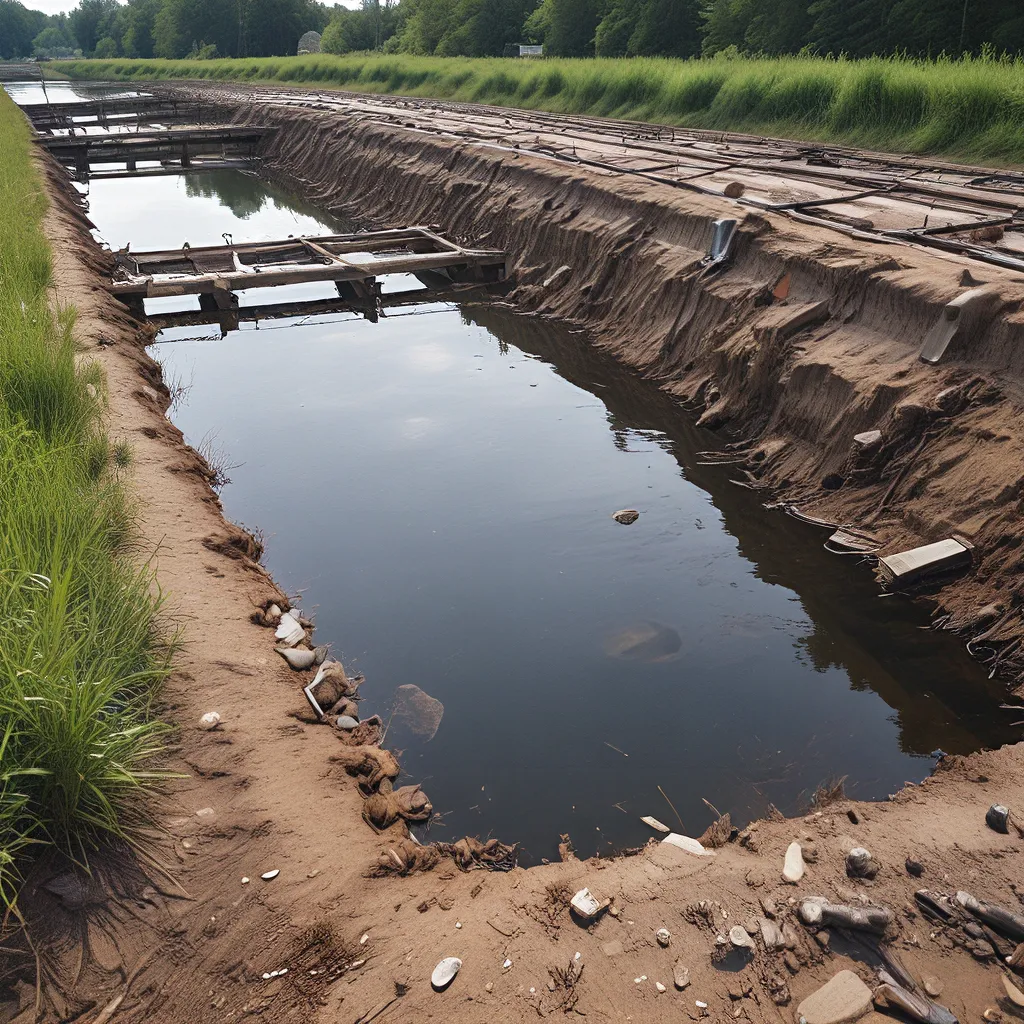
As someone who’s always been fascinated by the natural world and our impact on it, I’ve been deeply troubled by the stories I’ve been hearing about the consequences of improper wastewater disposal. It’s a topic that hits close to home, as I live in a region where agricultural communities are grappling with the devastating effects of settlement wastewater contaminating their lands and livelihoods.
The Ripple Effect of Toxic Waste
When I first learned about the Norwegian Refugee Council’s (NRC) report on the environmental impact of Israeli settlements in the occupied West Bank, I have to admit, I was both shocked and saddened. The revelations were quite sobering – fertile farmlands transformed into industrial zones, native forests bulldozed, and vital water sources polluted with untreated sewage and animal waste. It’s a stark reminder of how our actions, even those far removed from our daily lives, can have far-reaching and catastrophic consequences.
As I delved deeper into the issue, I was struck by the sheer scale of the problem. According to the report, the rapid expansion of Israeli settlements has led to a rapid increase in the environmental footprint of the occupation, with wastewater discharge being a particularly egregious example. The discharge of untreated or inadequately treated settlement wastewater onto Palestinian lands has had severe and pervasive impacts, damaging crops, threatening public health, and eroding the relationship between local communities and their ancestral lands.
The NRC report paints a grim picture of the situation on the ground. Farmers in the affected areas have reported steep declines in crop yields and income, with some estimating losses of up to 70% of their olive tree harvests. The contamination of their lands with faecal-associated E. coli bacteria has also made it increasingly difficult for them to market their produce, further exacerbating the economic hardship.
Cascading Consequences
But the environmental and economic impacts are just the tip of the iceberg. The discharge of wastewater also serves to drive Palestinians from their lands and heighten the risk of expropriation, contributing to the ongoing forced displacement of Palestinians and the annexation of West Bank territory by Israel. This, in turn, raises serious questions about Israel’s adherence to international law.
It’s a grim and complex situation, to be sure. The interconnected nature of the environmental, economic, and human rights issues at play means that the consequences of this wastewater crisis ripple outward in ways that are difficult to fully comprehend. As I’ve learned more, I’ve come to realize that this is not just an isolated incident, but rather a symptom of a much larger and more systemic problem.
Seeking Solutions and Accountability
The Norwegian Refugee Council has been at the forefront of efforts to bring attention to this issue and to advocate for meaningful action. They’re calling for sufficient funding and technical support to be made available for projects that can help mitigate the environmental and economic impacts of settlement waste disposal on affected Palestinian communities. And they’re urging the international community, particularly Israel’s staunchest allies, to exert pressure on Israel to safeguard Palestinian communities, lands, and resources from the detrimental effects of this hazardous waste.
But as I’ve come to understand, the path to a solution is fraught with challenges. The political and diplomatic tensions surrounding the Israeli-Palestinian conflict make this a highly charged and sensitive issue. And the asymmetry of power and resources between the two sides means that the burden of addressing the problem often falls disproportionately on the Palestinian community.
Despite these obstacles, I believe that finding a way forward is imperative. The human rights and environmental implications of this crisis are simply too dire to ignore. We owe it to the affected communities, and to the planet as a whole, to explore every avenue for addressing this problem and holding those responsible accountable.
A Shared Responsibility
As I’ve grappled with this issue, I’ve come to the realization that we all have a role to play in finding a solution. Whether you’re a concerned citizen, a policymaker, or a business leader, we all have a stake in ensuring that our water resources are protected and that communities are not forced to bear the brunt of environmental degradation.
For me, this has sparked a personal journey of learning and action. I’ve been exploring ways to support the work of organizations like the NRC, and I’ve been advocating for greater transparency and accountability when it comes to the environmental impacts of business and government decisions.
At the same time, I know that the path forward will not be easy. There will be setbacks, challenges, and difficult conversations to be had. But I remain hopeful that by working together, we can find a way to mitigate the devastating effects of wastewater discharge and protect the rights and livelihoods of those most impacted.
After all, our planet and its people are counting on us to rise to the occasion. The stakes are simply too high to ignore. Let’s roll up our sleeves and get to work.